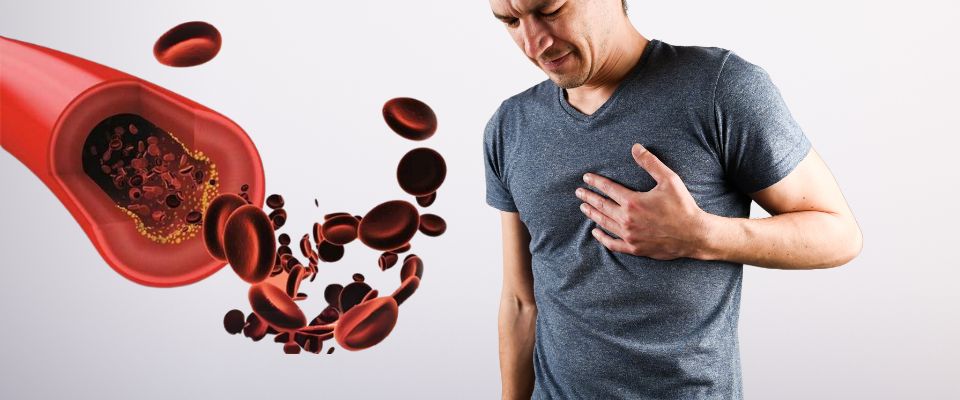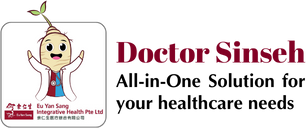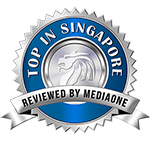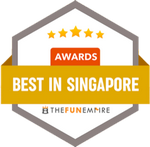
Many people have misconceptions about cholesterol, thinking it is detrimental to the body however this is not exactly true. Cholesterol can be either a friend or an enemy, depending on their levels in blood stream. Cholesterol is an essential substance for the body’s normal physiological functions such as precursors for cellular membrane, certain hormones and vitamin D.
Hypercholesterolaemia, or commonly known as high cholesterol occurs when the total cholesterol (TC) exceeds 240mg/dL, or when low-density lipoprotein cholesterol (LDL-C) exceeds 130mg/dL. Cholesterol plaques build up in the arteries, a condition called atherosclerosis which may partially or totally obstructs blood flow to organs such as the brain, heart, kidneys and extremities. A small portion of the plaque may break off, or the formation of blood clot on the plaque’s surfaces may result in a heart attack or stroke.
Cholesterol is classified into LDL-C and high-density lipoprotein cholesterol (HDL-C). LDL-C is harmful to the body – it attaches to the arterial walls and hardens the arteries (reduced flexibility). In contrast, HDL-C helps to carry cholesterol to the liver for removal and storage which therefore prevents formation of cholesterol plaques.
TCM Cause
Li Guang Jun, a registered TCM physician physician with Eu Yan Sang TCM Clinic at Serangoon and Simei shares the following causes:
- Yin deficiency with the production of asthenic Fire: Chronic mental stress or excessive emotional activities may cause Liver Qi stagnation and the production of Liver Fire when exhaust the Yin. The depletion of the Liver Yin may then complicate the Kidney.
- Heat-phlegm syndrome: Alcoholism or a diet high in calories (fats and sugars) can damage the Spleen and Stomach, resulting in build up for phlegm-dampness and toxins.
- Phlegm-Blood stasis syndrome: the formation of heat-phlegm (unwanted wastes) obstructs normal blood flow, causing stagnation of Blood. When heat, phlegm and Blood stasis mix with one another, they can result in the yin exhaustion of the Liver and Kidney with obstruction to proper circulation.
Symptoms
People with slightly elevated blood cholesterol often do not experience any symptoms However, the absence of symptoms does not indicate normal level of blood cholesterol. Therefore, regular medical check up is important in detecting the condition. Other symptoms may include giddiness, fatigue, weakness, insomnia, forgetfulness, chest discomfort and fast heart rate. High cholesterol is often seen in overweight or obese individuals. The chronic elevation of blood cholesterol without medical treatment can result in coronary heart disease, peripheral arterial disease which exhibit as chest pain (angina), heart attack, stroke and intermittent claudication (limping due to obstruction in arteries)
TCM categorises high cholesterol into various syndromes, namely Phlegm obstruction type, Excessive Dampness with Kidney deficiency type, Stagnation of Qi with Blood Stasis type, Yin deficiency of the Liver and Kidney type, Yang deficiency of the Spleen and Kidney type and lastly simple type based on individual’s clinical presentation, tongue, pulse. A treatment plan is then formulated based on the different syndromes and according to individual’s physique.
Susceptible group of people
Family history of high cholesterol, individuals who are overweight or obese, middle aged and above, post-menopausal women, heavy smoker and drinker, people with sedentary lifestyle, people with medical conditions such as diabetes, high blood pressure, fatty liver. Irregular lifestyle, people who are easily tensed, agitated and under chronic mental stress.
Cholesterol-lowering herbs
There are various herbs or food that exhibit cholesterol lowering properties. Some examples are hawthorn (shan zha), red sage (dan shen), oriental water-plantain (ze xie), tuber fleeceflower (he shou wu), cassia seeds (jue ming zi), solomon’s seal (huang jing), kudzu root (ge gen), cattail pollen (pu huang), lotus leaves (he ye), gynostemma tea (jiao gu lan) and lastly ginkgo leaves (yin xing ye). They may be boiled or simmered with hot water and consume as tea. However, it is advisable to consult a physician as individual’s physique and symptoms may differ or when your condition persists or does not improve.
Food Remedy
Hawthorn congee
Ingredients: Hawthorn fruit 30-45g (or fresh product 60g), white rice 100g, sugar
Properties: Strengthen Spleen, Stomach and lower cholesterol. Suitable for individuals with high cholesterol, high blood pressure, coronary heart disease and those who experience indigestion (especially for those who consume plenty meat)
Method: Boil hawthorn to obtain concentrated juice, cook rice with juice till desired consistency and sweeten as desired. Consume warm, once daily for 10 days.
Caution: Not to be taken cold or on an empty stomach.
Chrysanthemum and Cassia seed congee
Ingredients: chrysanthemum 10g, cassia seeds 10-15g, white rice 50g, rock sugar
Properties: Clear Liver and brighten eyes, lower blood pressure and soothe bowels
Method: Place cassia seeds in clay-pot and roast till fragrant. When cooled, boil with chrysanthemum, filter and drain. Cook rice with filtrate till desired consistency, sweeten with rock sugar. Consume once daily, 5-7 days as a course of treatment.





